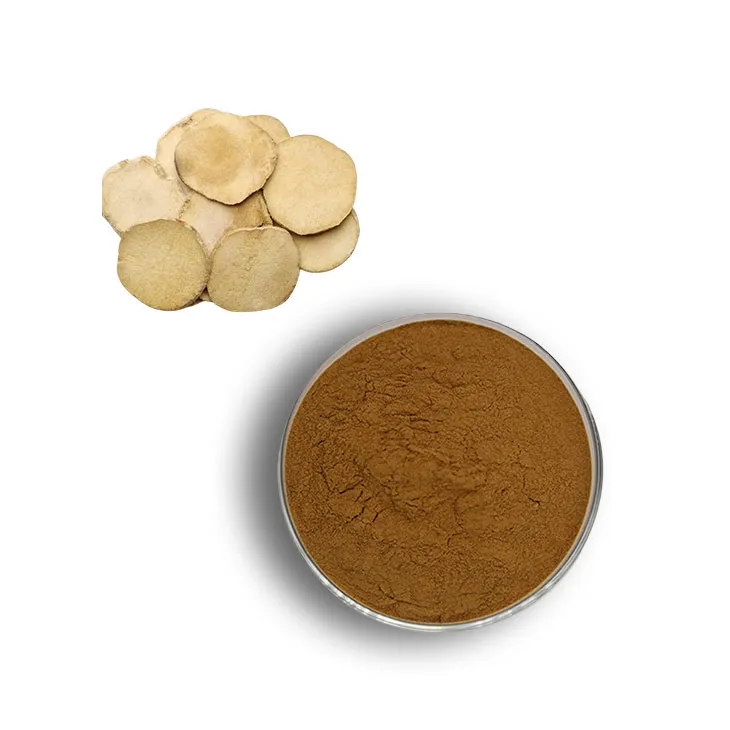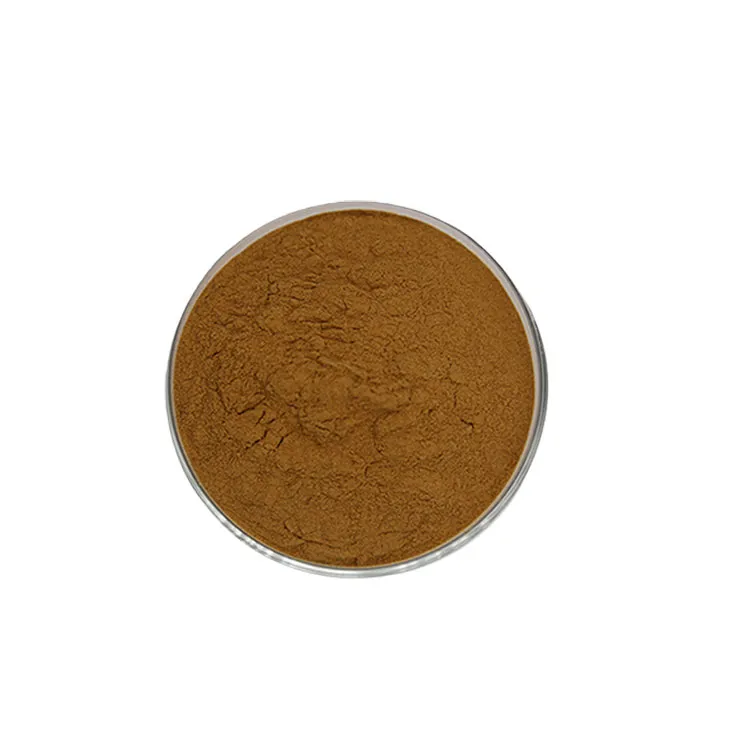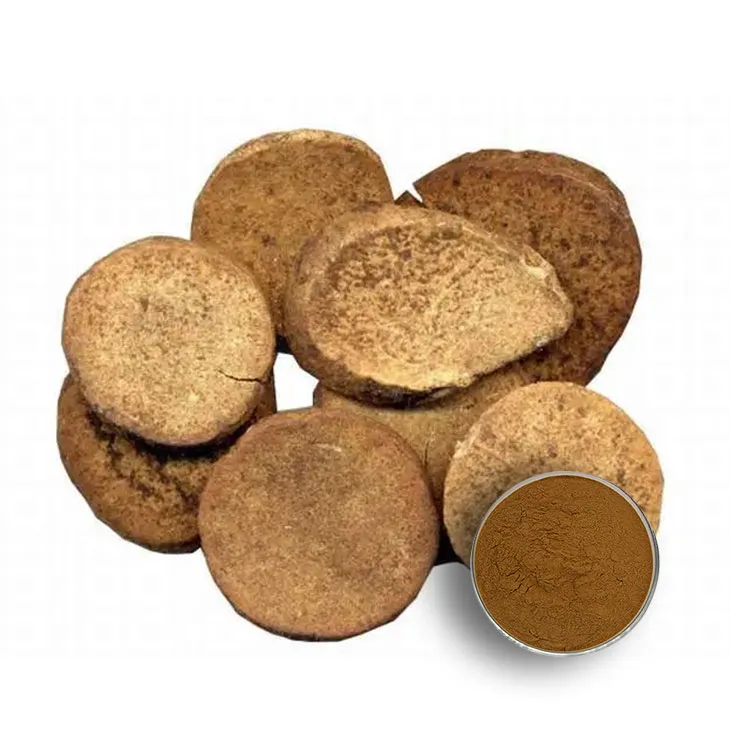- 0086-571-85302990
- sales@greenskybio.com
11 Reasons to Switch to Organic and Natural Alisma Extract.
2024-12-18

1. Environmental Sustainability through Organic Extraction
Organic extraction of Alisma orientale is crucial for promoting environmental sustainability. In the process of obtaining extracts, the reduction of chemical use is a significant advantage. Conventional extraction methods often rely on a variety of synthetic chemicals, which can have a negative impact on the environment. For example, some chemicals may seep into the soil and water sources near the cultivation area of Alisma orientale, contaminating them.
Organic extraction, on the other hand, focuses on using natural and environmentally friendly methods. This not only helps to preserve the natural habitats around the Alisma orientale cultivation sites but also reduces the overall carbon footprint associated with the extraction process. It is in line with the global trend of sustainable development and environmental protection.

2. Higher Purity in Natural Extracts
Natural Alisma orientale extracts typically possess higher levels of purity compared to non - natural ones. This higher purity directly translates to better performance in various applications. When the extract is purer, it contains a higher concentration of the active compounds that are responsible for its beneficial effects.
For instance, in the field of medicine or dietary supplements, a purer extract can provide more accurate and effective treatment or supplementation. In the cosmetic industry, the high - purity natural extract can offer better skin - care benefits, such as more efficient moisturizing, anti - aging, or anti - inflammatory effects.

3. Rich in Natural Bioactive Components
One of the main attractions of organic and natural Alisma orientale extracts is their richness in natural bioactive components. These components are what give the extract its multiple health advantages. Bioactive compounds such as polysaccharides, flavonoids, and terpenoids are present in the extract.
- Polysaccharides have been shown to have immunomodulatory effects, helping to boost the body's immune system.
- Flavonoids are known for their antioxidant properties, which can scavenge free radicals in the body and prevent oxidative damage to cells.
- Terpenoids may have anti - inflammatory and anti - microbial activities, contributing to overall health.

4. Meeting Consumer Preference for Natural Products
In today's market, there is an increasing preference for natural products among consumers. People are becoming more conscious about what they put into their bodies and on their skin. Organic and natural Alisma orientale extracts are a perfect fit for this trend.
Consumers are more likely to choose products that contain natural ingredients over those with synthetic or artificial substances. This preference is driven by a desire for a more natural and holistic approach to health and well - being, as well as concerns about potential side effects associated with synthetic ingredients.

5. Supporting Sustainable Agriculture of Alisma orientale
Switching to organic and natural extraction of Alisma orientale supports the development of sustainable agriculture related to this plant. Organic farming practices for Alisma orientale involve methods such as crop rotation, natural pest control, and the use of organic fertilizers.
- Crop rotation helps to maintain soil fertility and prevent the build - up of pests and diseases specific to Alisma orientale.
- Natural pest control methods, such as using beneficial insects or plant - based repellents, reduce the need for chemical pesticides, which are harmful to the environment and can also contaminate the plant.
- The use of organic fertilizers, like compost or manure, enriches the soil with nutrients in a natural and sustainable way.
6. Lower Side - effect Probability
Compared to non - natural counterparts, organic and natural Alisma orientale extracts have a lower probability of causing side - effects. Synthetic extracts may contain additives or impurities that can trigger allergic reactions or other adverse effects in some individuals.
Since natural extracts are closer to their original plant form and are free from many of the synthetic chemicals used in non - natural extraction processes, they are generally better tolerated by the human body. This makes them a safer choice for a wide range of applications, including dietary supplements, herbal remedies, and cosmetics.
7. Protecting the Alisma orientale Ecosystem
The use of organic and natural extraction methods for Alisma orientale contributes to the protection of its ecosystem. The plant is an important part of its native habitat, and any extraction process that minimizes environmental impact helps to preserve the delicate balance of the ecosystem.
For example, by avoiding the use of harsh chemicals in extraction, the surrounding flora and fauna are not exposed to potential toxins. This also helps to maintain the biodiversity of the area where Alisma orientale grows, as other plants and animals that depend on a healthy environment can thrive.
8. Ideal for Sensitive to Artificial Substances
For those who are sensitive to artificial substances, organic and natural Alisma orientale extracts are a great choice. People with sensitive skin, for example, may experience irritation or allergic reactions when using products containing synthetic ingredients.
Natural extracts, being free from artificial fragrances, colors, and preservatives, are less likely to cause such problems. Similarly, individuals with sensitivities to synthetic chemicals in dietary supplements may find that natural Alisma orientale extracts are a more suitable option.
9. Unique Organoleptic Qualities
Organic and natural Alisma orientale extracts provide unique organoleptic qualities such as flavor and fragrance. These natural qualities can enhance the appeal of products in which they are used.
In the food and beverage industry, the natural flavor of the extract can add a unique and pleasant taste to products. In the cosmetic and perfume industry, the natural fragrance of the extract can create a more alluring and natural - smelling product, without the need for artificial fragrances that may not be well - tolerated by some consumers.
10. Aiding in Holistic Health Naturally
The use of organic and natural Alisma orientale extracts aids in achieving holistic health in a natural and gentle manner. Holistic health encompasses physical, mental, and emotional well - being.
The natural bioactive components in the extract can support various aspects of health. For example, the antioxidant properties can help protect the body from diseases at a physical level. The potential stress - relieving effects of some components may contribute to mental and emotional well - being.
11. Fitting into the Clean - label Product Trend
In the marketplace, there is a growing trend towards clean - label products. Organic and natural Alisma orientale extracts fit well into this trend. Clean - label products are those that have simple, recognizable, and natural ingredient lists.
By using organic and natural extracts in products, manufacturers can appeal to consumers who are looking for clean - label options. This can give products a competitive edge in the market, as consumers are more likely to trust and purchase products with clean labels.
FAQ:
Q1: What is the most important advantage of organic and natural Alisma orientale extracts?
It's hard to single out one as the most important as they all have their significance. However, promoting environmental sustainability (Reason 1) is crucial as it has a far - reaching impact on the overall ecosystem and future generations.
Q2: Are there any risks associated with non - natural Alisma orientale extracts?
Yes, non - natural extracts have a higher probability of causing side - effects compared to organic and natural ones (Reason 6). Also, they may contain artificial substances that some people may be sensitive to, while natural extracts are a great choice for those sensitive to artificial substances (Reason 8).
Q3: How do organic and natural Alisma orientale extracts contribute to consumer health?
They are rich in natural bioactive components, which offer multiple health advantages (Reason 3). They also aid in achieving holistic health in a natural and gentle manner (Reason 10).
Q4: Why are organic and natural Alisma orientale extracts in line with market trends?
They fit well into the clean - label product trend in the marketplace (Reason 11) and also cater to the increasing preference for natural products among consumers (Reason 4).
Q5: How do organic and natural Alisma orientale extracts support the ecosystem?
Organic extraction promotes environmental sustainability by reducing chemical use (Reason 1) and contributes to the protection of the Alisma orientale ecosystem (Reason 7). It also supports the development of sustainable agriculture related to Alisma orientale (Reason 5).
Related literature
- The Benefits of Organic Alisma orientale Extracts in Health and Environment"
- "Natural Alisma orientale Extracts: A Review of Purity and Performance"
- "Sustainable Agriculture and the Role of Organic Alisma orientale"
- ▶ Hesperidin
- ▶ citrus bioflavonoids
- ▶ plant extract
- ▶ lycopene
- ▶ Diosmin
- ▶ Grape seed extract
- ▶ Sea buckthorn Juice Powder
- ▶ Beetroot powder
- ▶ Hops Extract
- ▶ Artichoke Extract
- ▶ Reishi mushroom extract
- ▶ Astaxanthin
- ▶ Green Tea Extract
- ▶ Curcumin Extract
- ▶ Horse Chestnut Extract
- ▶ Other Problems
- ▶ Boswellia Serrata Extract
- ▶ Resveratrol Extract
- ▶ Marigold Extract
- ▶ Grape Leaf Extract
- ▶ blog3
- ▶ blog4
- ▶ blog5
-
Pure 85% Tomentil Extract.
2024-12-18
-
American Ginseng Root Extract
2024-12-18
-
Panax Ginseng Leaf Extract
2024-12-18
-
Sophora Flavescens Root Extract
2024-12-18
-
Rosemary extract
2024-12-18
-
Eyebright Extract
2024-12-18
-
Red Vine Extract
2024-12-18
-
Ivy Extract
2024-12-18
-
Cranberry Extract
2024-12-18
-
Sea buckthorn Juice Powder
2024-12-18
-
Hericium erinaceus extract powder
2024-12-18





















